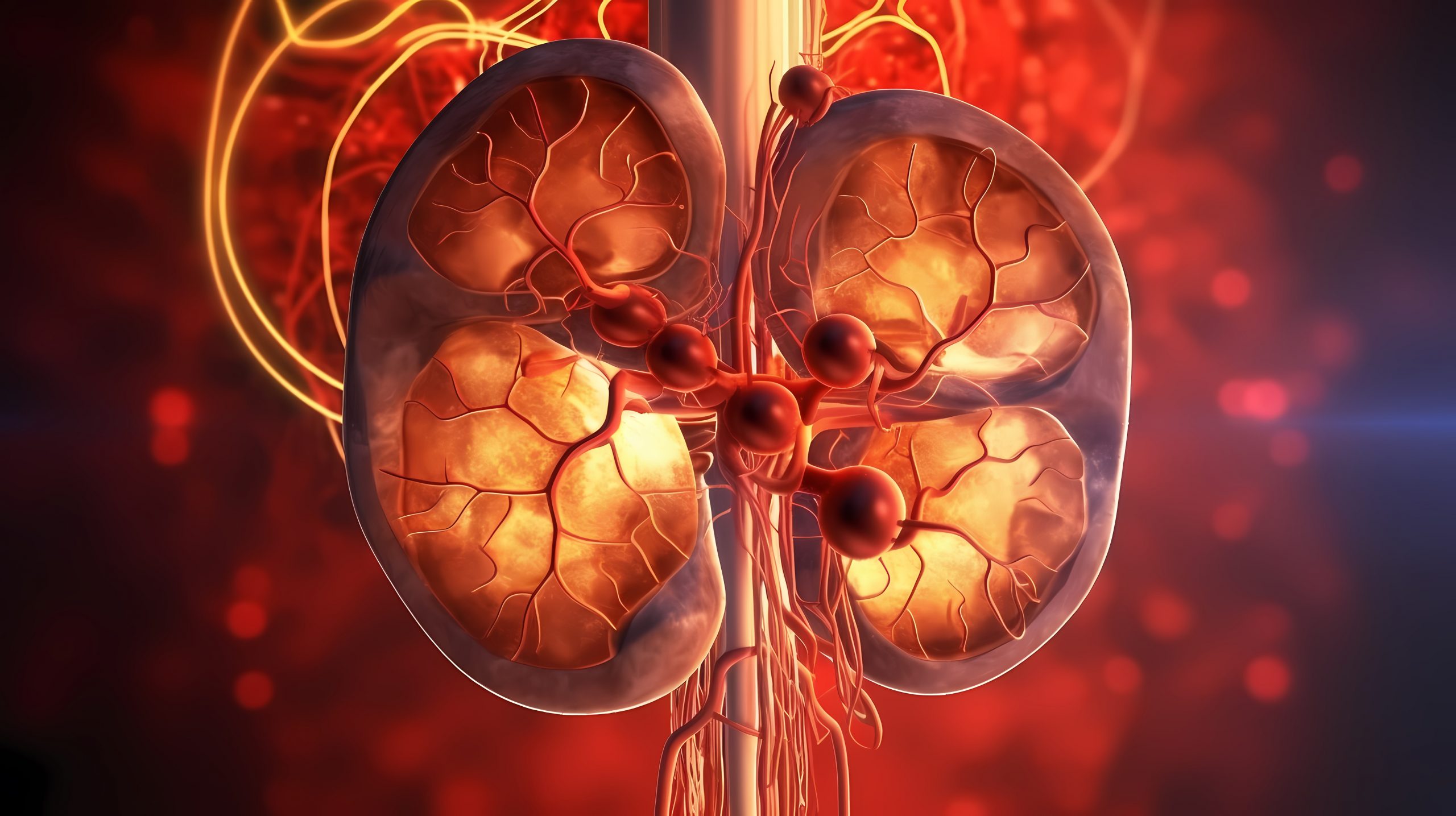Kidney Cancer in Singapore: What you need to know
Kidney cancer, also known as renal cancer, originates in the kidneys—two bean-shaped organs located on either side of the spine, just below the rib cage. The kidneys play a vital role in filtering waste from the blood and producing urine. In Singapore, kidney cancer is one of the more common types of cancer, affecting both men and women. Early detection and treatment are crucial for better outcomes.
Symptoms
In the early stages, kidney cancer may not cause noticeable symptoms. However, as the disease progresses, common symptoms include:
- Blood in the Urine: This may appear as pink, red, or cola-colored urine.
- Persistent Pain: Pain in the side or back that doesn’t go away.
- Unexplained Weight Loss: Significant weight loss without trying. Fatigue: Feeling unusually tired or weak.
- Fever: Persistent fever not caused by an infection.
- Swelling: Swelling in the legs or ankles.
- Lump in the Abdomen: A palpable mass or lump in the abdominal area.
Causes
The exact cause of kidney cancer is not known, but several factors can increase the risk, including:
- Smoking: Increases the risk of kidney cancer by damaging kidney cells.
- Obesity: Excess body weight can contribute to changes in hormones that affect kidney cancer risk.
- High Blood Pressure: Hypertension has been linked to an increased risk of kidney cancer.
- Family History: A family history of kidney cancer can increase the risk of developing the disease.
- Age: Kidney cancer is more common in older adults, typically those over 60.
- Gender: Men are more likely to develop kidney cancer than women.
Diagnosis of Different Types of Kidney Conditions
Early diagnosis of kidney conditions, whether benign or malignant tumours, involves several steps and tests:
Imaging Tests:
- Ultrasound: Used to detect and differentiate between benign conditions like renal cysts and angiomyolipomas, and malignant conditions such as renal cell carcinoma (kidney cancer).
- CT Scans and MRI: These provide detailed images of the kidneys and are crucial for detecting and characterizing any abnormalities, including the extent and nature of tumors.
Blood Tests:
Blood tests offer insights into kidney function and can help identify markers indicative of cancer or other kidney issues.
Biopsy:
In certain cases, a small sample of kidney tissue is removed and examined under a microscope to confirm the presence of cancer cells, helping to differentiate between benign and malignant conditions.
Treatment Options for Kidney Conditions
The treatment approach varies based on whether the condition is benign or malignant, the stage of the condition, and the patient’s overall health. Here are some common treatment options:
1. Benign Conditions:
- Renal Cyst:
Often monitored with regular imaging to ensure they do not grow or cause symptoms.
Symptomatic cysts may require aspiration or surgical removal. - Angiomyolipoma:
Small, asymptomatic angiomyolipomas might be monitored with periodic imaging.
Larger or symptomatic angiomyolipomas may require intervention, such as embolization or surgery, to prevent complications like bleeding.
2.Malignant Conditions (Renal Cell Cancer or Kidney Cancer):
- Surgery:
The primary treatment for most malignnant tumours/kidney cancers.
Partial Nephrectomy: Involves removing the tumour and part of the kidney.
Radical Nephrectomy: Involves removing the entire kidney, surrounding tissue, and sometimes lymph nodes. - Ablation and Embolization:
Minimally invasive procedures that destroy the tumour or block its blood supply. - Radiation Therapy:
Uses high-energy radiation to kill cancer cells. Often used when surgery isn’t an option. - Targeted Therapy:
Drugs that specifically target cancer cells while sparing healthy cells. Often used for advanced kidney cancer. - Immunotherapy:
Boosts the body’s immune system to fight cancer. It can be used alone or in combination with other treatments. - Chemotherapy:
Less commonly used for kidney cancer but may be an option in certain cases, particularly for advanced or recurrent cancer.
Understanding the nature of the kidney condition, whether benign or malignant, is crucial in determining the appropriate diagnostic approach and treatment plan. Regular monitoring and timely intervention can significantly improve outcomes for patients with kidney conditions.

FAQs
At our clinic, we prioritize your comfort and well-being. Dr Azhari takes a patient-centered approach, considering your unique health profile and lifestyle in recommending the most suitable treatment.
Kidney cancer is diagnosed using imaging tests like CT scans, MRIs, and ultrasounds. Blood tests and biopsies may also be conducted to confirm the diagnosis and determine the stage of the cancer.
Risk factors for kidney cancer include smoking, obesity, high blood pressure, family history, age, and gender. Men and older adults are at higher risk.
Treatment options include surgery, ablation and embolization, radiation therapy, targeted therapy, immunotherapy, and chemotherapy. The choice of treatment depends on the cancer stage and the patient’s health.
Post-treatment, patients may experience fatigue, pain, and other side effects depending on the treatment received. Regular follow-up appointments are essential to monitor recovery and detect any recurrence. Lifestyle changes and support groups can also aid in recovery and improve quality of life.
For more detailed information or to schedule a consultation, please contact our medical professionals. We are committed to providing the necessary care and support for kidney cancer patients in Singapore.
Accredited Specialist
Dr Azhari, a distinguished urologist and kidney stone surgeon, possesses comprehensive expertise in addressing and managing a diverse array of urological conditions.
Comprehensive Services
Under the guidance of Dr Azhari, our clinic delivers an array of specialized urological services, ensuring precise diagnoses and effective treatments tailored to your specific needs.
Approachable Staff
Our dedicated team collaborates closely with each patient, focusing on understanding individual health objectives and customizing treatment plans accordingly.
Get an Accurate Diagnosis & Appropriate Treatment for Your Urological Conditions
Make An Appointment With Our Urologist Singapore, Dr Azhari Today.

Dr. Nor Azhari Bin Mohd Zam
Urologist Singapore
- Skilled urologist and kidney stone surgeon
- Director of Endourology (Urinary stone service) at Singapore General Hospital – 2016 to 2023
- Recognized with the College of Surgeons Gold Medal and Singapore Urological Association Book prize
- Minimally invasive treatment options available (non invasive and endoscopic/key-hole techniques)
With over 14 years of experience as a certified Urologist, Dr Nor Azhari specializes in treating a wide range of bladder, kidney, and prostate conditions. He offers minimally invasive treatment options and provides same-day appointments for convenience.
